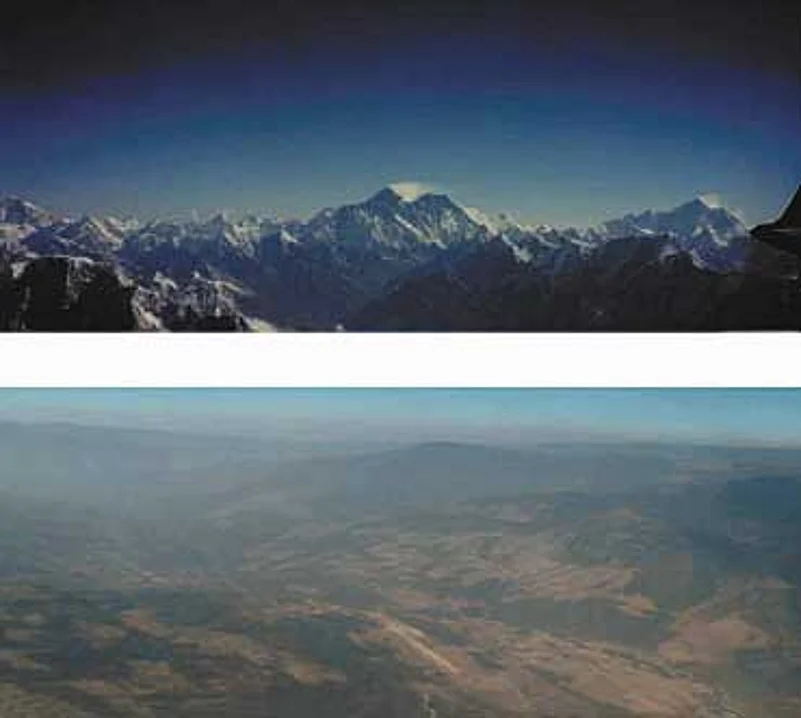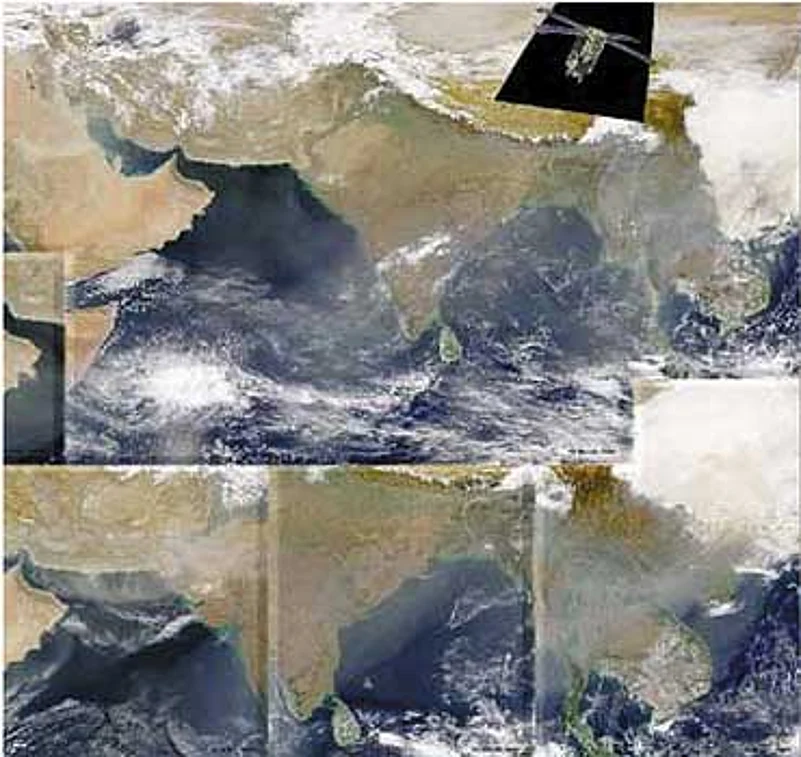
A G-8 summit wouldn't be the place to answer such questions if Britain had not made climate change a central issue. (The development of Africa is the other important issue.) Yet the voices asking India and other emerging economies to do more have been getting louder. Ken Newcombe, the World Bank's senior advisor for sustainable development, told a meeting in Paris earlier in June that "a new global climate management regime must include limiting the emissions of greenhouse gases in rapidly industrialising countries such as India, China, Mexico, and Brazil". This agreement, he said, must replace the Kyoto Protocol. Newcombe was the key man in getting the Kyoto Protocol signed in 1997.
India signed up for the Kyoto Protocol, but under the "common but differentiated responsibilities" was not required to do much. Under the protocol, a group of developed (Annex-I) countries agreed to clean up their industry enough to reduce emissions by 5.2 per cent by 2012, relative to 1990 levels. Emission of greenhouse gases, principally carbon dioxide and methane from transport, power plants and other industry are believed to be heating up the atmosphere, leading to a disruption of climate patterns. Action was required only by the most industrialised countries on the understanding that emissions rise in proportion to industrialisation.
The G-8 summit, however, could see the beginning of pressure for countries like India and China to do more. That is pressure Manmohan is certain to resist. Clean technologies come at a price. At a time when Indian manufacturing is being overwhelmed by Chinese prices, the Indian government is not likely to force industry to up production costs by spending vast sums on introducing new technology for the sake of the air rather than goods for sale. "Historically, it is the developed countries that have caused the problem," said Pachauri. "Also in per capita terms, China, India and the developing countries emit a very small fraction of what the developed countriesemit. So there is clearly no basis for China and India to be brought under the same kind of regime as the developed countries".
The developing worldview is that if western nations want to limit emissions from developing countries, they should help with new technology. "They could provide finance or grants for implementing projects and also ensuring there is much more exchange between scientists, between policymakers, so that information can flow in both directions," says Pachauri. "We need to set up a cooperative mechanism."
The best possible outcome could be "for the G-8 to offer ways of helping out", Catherine Pearce of Friends of the Earth, an environmental group, told Outlook. "A lot of countries such as India and South Africa cannot make the switch to clean technology on their own."
In resisting the push to switch to clean technology, the Indian PM will have a firm ally in George Bush, who led the United States out of the Kyoto Protocol. The US view is that it knows how to protect its industry and the environment, and does not need to be tied to an international treaty to do either. In the shadow of a US 'no', an Indian 'no' to Britain will be far more comfortable.
Hovering US objections have meant prolonged negotiations on any agreed G-8 draft on climate change. In a leaked draft of which Outlook obtained a copy, the opening words "Our world is warming" were placed in parentheses, indicating there was no immediate consensus on global warming, the very basis of any action at all on climate change. Parentheses indicating a lack of agreement appear also elsewhere in the leaked draft: "The world's developed countries have a responsibility to show leadership." So no consensus either that developed countries owe developing countries clean technology.

But to divide and emit would be a self-defeating victory. The vulnerability of India and South Asia to undoubted climate change is "extreme", says Pachauri. "Our glaciers are melting rapidly, agriculture is highly vulnerable to climate change, we have problems of water scarcity which could get much worse. Bangladesh is a very low-lying area, so in the event of sea level rise we could have severe problems."
The aerosols, dust or carbon particles in the air are real and damaging. Toepfer said the haze is "the result of forest fires, the burning of agricultural wastes, dramatic increases in the burning of fossil fuels in vehicles, industries and power stations and emissions from millions of inefficient cookers burning wood, cow dung and other 'bio-fuels'". A lethal mix, that is, of traditional village practices and new industrialisation. Denying Indian nationality to these aerosols may only prolong the problem overhead. The carbon and aerosol haze is thought to sit as a blanket around the Earth, restricting re-radiation and trapping heat, and leading therefore to warming of the atmosphere.
The standard spin is to present Manmohan's visit as a sign that India has made it to at least the outer compound of the G-8 mansion. Over the three-day summit, Manmohan and emerging company have been invited to attend the meetings on one day (July 7). Climate change will not be the only matter on the agenda, but Britain is making it significant within the little slot reserved for the Indian PM and emerging company. Otherwise, the presence of No 9 and onwards around G-8 is more symbolic than substantive.
If nothing else, the accent on climate at G-8 could get India thinking about climate change a little more. When Manmohan Singh begins his descent into Delhi down through that haze after the G-8 meeting, the picture will still not be clear either through the window, or in his files. But back in his office, Manmohan will be sitting under a sword of Damocles like everyone else, and even if it hangs high and light, it cannot forever be someone else's responsibility to removeit. Who would you fool by winning an argument at Gleneagles and losing the battle back home.

























